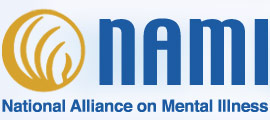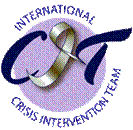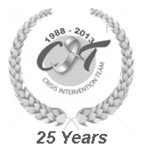FAQs
How can I contact the Barbara Schneider Foundation?
Mark Anderson has been our Executive Director since 2003.
Contact him with questions about trainings, helping to build collaboration in your community, or concerns you have about mental health crisis.
Who Was Barbara Schneider?
A note from Carol Warren Nichols, Barb’s Sophomore year roommate (9/12/2013)
Recently, nine women who graduated from the University of Rochester, NY, met for an informal reunion. (Summer, 2013). Some of us did a little hunting around for those we knew. I had lost touch with Barb after my Junior Year at school – she was profoundly ill in college, perhaps for the first time. I was horrified and shocked to see what could happen to such a brilliant and funny roommate. It sounds as if, though her death was immensely tragic, her “life” before and after her death was and is as full and vibrant as her intelligence and good character would anticipate that life could be. Her presence is sustained in so many ways, not the least of which has been in my memory and in my heart, and in your work.
She declined sharply during our first semester. It was a crisis for her of huge proportions. That alone shocked me into thinking that something was seriously wrong. One difficult episode was November 1, 1969. That night she told me that she felt as if she were sitting on a powder keg. We talked long and hard about seeking help. Then, she checked herself into R wing at Strong Memorial Hospital. I visited her there early on, even getting permission to see her in the locked side of the unit, where she had voluntarily placed herself. She gradually retreated to places inside herself that I didn’t know could exist in anyone of us. We first met when I went with her (she had lived across from me on Holly Five) to a dinner during our Freshman year, given by one of the college trustees. We laughed all night, and decided we would make great roommates.We hada very enjoyabletime, and she was a spectacular roomie, if only for that first half of the Sophomore Fall term. She was brilliant, and I miss her!
A Letter from Karen Werbin Eckert LCSW (10/2007)
I decided today to Google Barb Schneider, who was my college friend. My college friends and I have all grieved for her, and what she had suffered. She was a witness at my wedding in 1983, and we traveled to Israel together in 1980. We camped out there, and had a great time. Her father was a very brilliant lawyer who I believe worked at the Nuremberg trials. I met him once, at a family dinner when the conversation was very intense about what was happening in the world at that time. I always felt there were so many layers to Barb, so much depth and such a willingness to face the darkness. To understand her father’s experience, she was willing to learn what she could about the trials, to see that side of evil.
I am so happy to hear that some good has come from her death. Barb had a very strong impact on my life, when we were both young. She was a very intense person with deep passions. Her illness was first evident when we were in college so I saw its impact on her. This experience was one of the factors that led me to choose my profession. For the past 27 years I have been a psychiatric social worker in Queens NY, and have tried to make a difference for people with mental illness I will be sending a donation in her honor.
An email from Martin Schneider (12/2007)
I am Barbara’s cousin from Boston. I have visited the foundation’s Website regularly… Barbara would have been pleased to know that something positive for society has come from such a tragic event. The work that you and all of the volunteers associated with the foundation do is so important to the community.
How can I learn more about a variety of topics related to mental illness?
Vist the Resources page on this Web site for links to authoritative information from leading national organizations that work in the areas of mental health policy, mental health law and criminal justice policies and procedures.
How can I improve the mental health crisis response system and related systems in my community?
BSF can work with you to convene a group of interested mental health and criminal justice professionals and community members in your area to discuss what needs to be done and do develop a plan for making needed improvements. Contact BSF today for more information!
What is BSF’s Mental Health Crisis
Prevention and Recovery cycle?
BSF’s Mental Health Crisis Prevention and Recovery Cycle is a graphic that shows the opportunites to prevent mental health crisis and to support recovery for an individual with a mental illness. It shows potential stops on the journey through the system. The cycle also identifies the specific professions and individuals who can support recovery and prevent crisis.
In each community, these team members make up the local mental health system.BSF provides unique training for each profession and team member because each one has their own unique legal mandates, tools, policies and proceedures in their work. These trainings are designed to provide a framework for understanding the behaviors that are difficult to deal with in clients and communtiy members and they teach concrete skills to improve interactions that get people the help they need, while protecting responder safety and improving work satisfaction.
BSF also provides collaboration training in local communities to help these team members come together to improve outcomes in their local mental health system. Collaboration training is designed to change the way these systems and professionals interact with each other.






